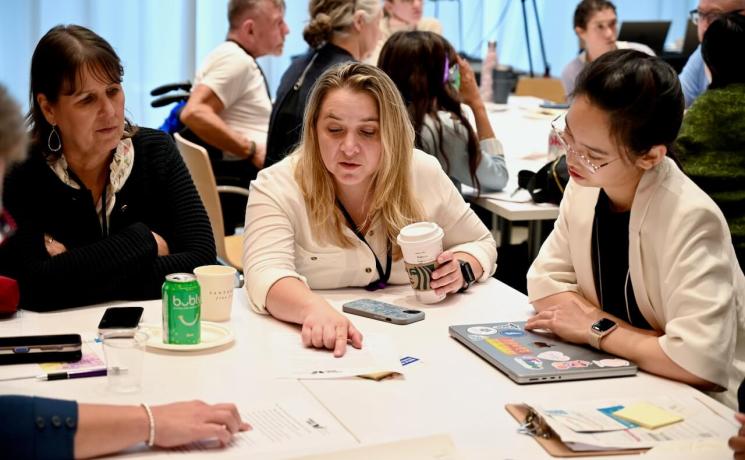Inclusive employment centre stage at IDEA Symposium

Health and safety leaders from across Canada convened at the Inclusive Design for Employment Access (IDEA) Symposium, held at the University of Toronto’s Schwartz Reisman Innovation Campus and online, to explore strategies for advancing inclusive employment. The event brought together experts, employers, and advocates committed to improving employment outcomes for people with disabilities.
Susanne Bruyere, academic director at the Yang-Tan Institute on Employment and Disability at Cornell University, delivered the opening keynote. She emphasized the need for ongoing adaptation, stating, “the workplace is changing, the way we work is changing, and the very nature of disability itself is changing.”
Leadership commitment and clear goals
Bruyere highlighted the importance of top management support. “If we had an articulated mission that was a part of the strategic business goals that was set by the top of the company, that company was five times more likely to successfully have hired a person with a disability in the past year,” she explained.
She also stressed the value of setting specific targets and communicating them throughout the organization: “Articulating specific goals for the desired outcomes, identifying specific targeted areas where talent is needed... makes it more real to the people that you are trying to get to embrace this with you, supervisors and other people who are going to be a part of that internal effort.”
Building inclusive pipelines and universal design
Bruyere urged employers to broaden recruitment networks and leverage community partnerships. She pointed to targeted internships as a key strategy: “Companies that have them were six times more likely to have successfully hired people with disabilities in the last year.”
She also advised organizations to ensure their online presence is both accessible and welcoming to job seekers with disabilities: “Looking at your website, as you begin to launch these initiatives, is critically important. Is it going to be one that's convincing that you really want people with disabilities in these jobs in your workplaces? That website needs to be both accessible as well.”
Bruyere advocated for universal design and proactive accommodation: “Designing for inclusion from day one is critically important. We talk about universal design, inclusive design, and it's embedded in this project.”
She recommended ongoing support and flexibility: “It's important to do periodic check-ins. And include policies and practices around flexible leaves and hybrid work. We certainly all saw that during the pandemic. We've learned a lot.”
Path forward
Concluding her remarks, Bruyere called for collective action: “Individuals with disabilities are one in five of us. Our workforce, workplace, and society will be immeasurably advantaged by having their full participation. There are known workforce development and workplace policies and practices that better assure we can achieve the goals we are focusing on all together here today. And I recognize this is an ever-evolving landscape, and it's only if we work together in forums like this that it's going to be possible.”
The IDEA Symposium provided health and safety leaders with actionable insights and a renewed commitment to building accessible, equitable workplaces for all.